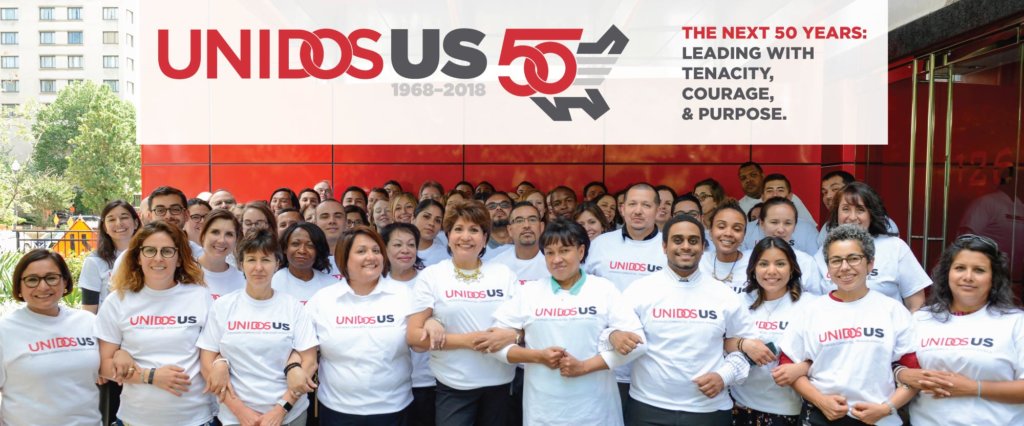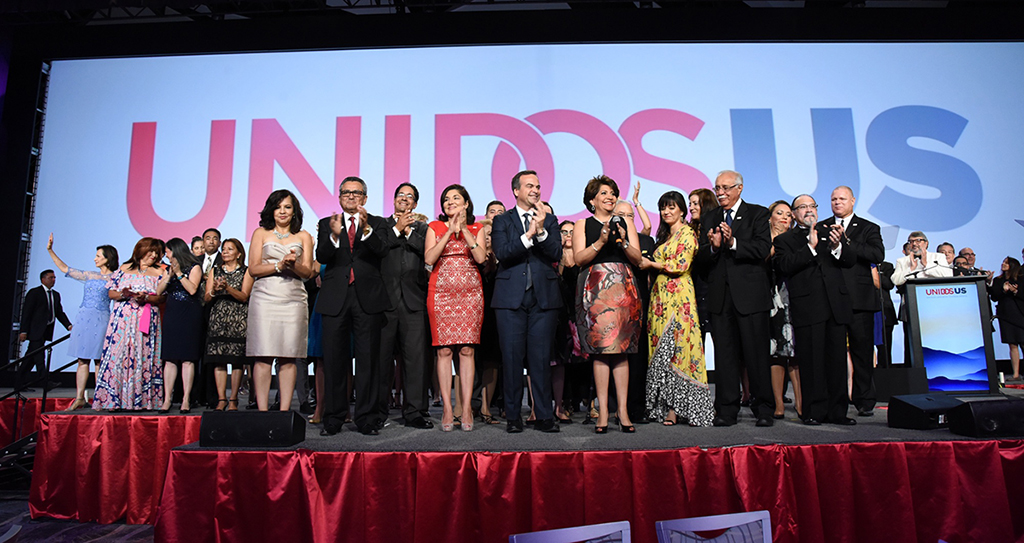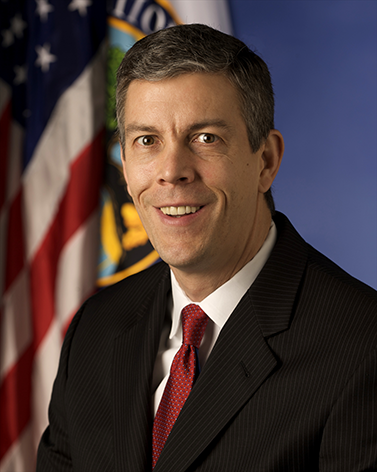What Native Language Assessments Could Mean for English Learners in Orlando
In early 2019, UnidosUS set out to help some of Florida’s nearly 300,000 English learner students by introducing a state bill for native language assessments, which would hopefully help students find better placement according to their overall academic knowledge, not just their mastery of English.
UnidosUS went to Orlando to speak with English learners, their parents, and policymakers about this campaign. The following are four excerpts from those interviews:

Bilca Marturé arrived in the United States with her husband and three children in 2016, fleeing violence in Venezuela. Before the country’s social and political crisis heightened, they had enjoyed a comfortable lifestyle running a hardware supplies import business, and their children were advancing well academically. But in 2014, Marturé’s husband was kidnapped, and after a successful release, the family decided it was time to move to Orlando, a place they used to visit on vacation.
She assumed her kids—twins who turn 11 in July and a 15-year-old boy—would integrate into the Florida public school system without much effort. After all, Orlando has a high number of Spanish-speakers.
“I never realized it was in English,” Marturé says of the state’s academic assessments, noting that UnidosUS told her how other states like Texas and California had already adopted a native language assessment program. “Here in Florida it doesn’t seem logical to me. If there are this many Hispanics—and I believe it’s one of the states with the highest concentration of them—why isn’t there an exam in Spanish for the children?”
Marturé started volunteering in the classroom after discovering that her children and other English learners were struggling with the tutorials their teachers provided as an aid. It seemed like an obvious solution, until she began to recognize her own limitations as a busy immigrant mother.
“The kid got a little better when I started volunteering, but I stopped going for a couple days because of my job, and the disaster started again,” she says, noting that private tutoring is expensive and tutoring within the school is only available close to standardized testing times.
“Why don’t they offer that all the time? That’s my question,” says Marturé. “With that type of help, the children would grow and advance much faster.”

Luis Antonio Matute Gonzalez, age 9, has been in the United States for two years, and he’s learned to cope with the dramas of migration, language learning, and other life changes with a bit of humor.
“I’ve made quite a few friends. In fact, I’m like the class clown, well one of them. There are a lot of us, like three, and we’re the ones who make everyone laugh so I’m doing pretty well,” Matute says in Spanish.
Matute, his brother Juan Pablo Matute Gonzalez and father Arturo Matute came to Orlando from Venezuela fleeing persecution for their political views; Matute’s mother passed away in Venezuela due to health complications. These aren’t things Matute will talk about, and they very likely have an impact on his ability to stay focused on learning English and other subjects, but he’s lucky he came into the school system at a fairly young age, for teenagers don’t fare as well.
“It was difficult for me to adapt, but I was able to do it,” he says, noting that sometimes students were pulled out of class and into special rooms to get assistance from other students who speak the same language. And in his regular class, there was one Spanish-speaking girl who could jump in and help him. When she couldn’t, he would just zone out.
“I would stare at the ceiling, I didn’t understand anything. I would look at what the other kids were doing, to see if they were picking their nose, just relax as if I were in the beach, waiting for classes to end so I could go home,” says the snarky third grader. He adds, “It wasn’t really my home, it was my aunt’s house, but I knew I could go there and rest and watch videos.”
Two years later, things are a little better. He, his brother, and their father now have a place of their own. His dad now works for an insurance company, which has given him some financial and emotional stability after several tumultuous years.
The increased stability facilitates the children’s ability to focus on their coursework, but for Matute, his favorite courses are still the ones that come the easiest because he’s closer to a place of comfort.
“Classes? I always go in order. First we go to reading, then we have our centers where there’s a space for grammar and reading. Then there’s an area with lots of books where you can read and respond to questions,” he explains.
“I like math because it comes at the end of the day when I’m more awake, and when I know I’ll be heading home to play,” he says.

Berta Luisa Fonseca left Venezuela for Orlando in 2018 fleeing the political crisis in her country and hoping to enroll her two children in good schools. Finding the right one with adequate English learner supports in place was a process of trial and error, and she thinks a statewide native language assessment bill would improve that.
Her son Andres, 15, studied English back in Venezuela, giving him a much better foundation for jumping into his other coursework with minimal ESL support. Her daughter Marcela, 10, did not. The school she attends has been instrumental in giving extra tutoring, including Saturday classes, around the time of standard achievement tests, but in the absence of native language assessments and extra Spanish-language tutoring, her grades have suffered.
“It would be important for the kids to have the opportunity to develop a bit more in their native language,” says Fonseca. “Evidently, if it were in Spanish, achievement would be better. She came very well-prepared from Venezuela.”
She says she and her husband, both engineers, had a solid educational experience back home, and believes her children did too. The biggest challenge is language and adaptation to American society, and it’s one she thinks policymakers at the state and national level can improve.
This past year, she volunteered with UnidosUS’s voter registration campaign, and this spring, she has voiced her support around the Orlando area for UnidosUS’s native language assessment bill. She’s confident it will pass and that, while it may be a little late to help place her children, her advocacy on this issue can pay it forward for other immigrant families.
“This is going to keep going, and these families will have a better experience when they immigrate,” she says.

Rene Plasencia spent 15 years teaching at Orlando’s Colonial High School prior to taking office as a Florida state representative for the 50th District in 2014. The son of Cuban émigrés, Plasencia grew up learning both Spanish and English, instilling in him an appreciation of the English learning experience. That’s why he has signed on as a major proponent of the UnidosUS-sponsored native language assessment bill.
“We have some brilliant students who, for not fault or their own, are here and may lack adequate skills in English to pass some of these exams. But it doesn’t mean that they’re not competent and skilled to be able to go to college and get a degree and be a positive contributor to our economy,” he says.
He says the English-only placement exams stifle students’ academic achievement, depreciate the value of their native-language knowledge and potential for bilingualism, lower their expectations of themselves, and deter them from hopes and dreams that could make Florida an even stronger economy than it already is. Last year, BizJournals.com reported that Florida’s GDP had just surpassed $1 trillion dollars, making it the 17th-largest economy in the world.
“We just reached the trillion-dollar mark for our GDP for our state,” he adds. “We have partners from all over the world; we need a skilled labor force, but we also need people who can speak multiple languages, so that we can communicate in other peoples’ languages, not just forcing them to communicate in English.”
In fact, he says recent arrivals should have the option of receiving all kinds of exams in their native language until they’ve gotten more established.
“What I saw as a teacher in that school is that we needed to have some flexibility for kids who just recently got here, Plasencia says. “In my opinion, if you’ve been here two years or less, you shouldn’t have to sit for an exam in English.”
Bills that introduce new policy to the Florida Legislature usually take multiple sessions to pass, and the Native Language Assessment bill is no different. For this year, UnidosUS’s goals were to get the bills introduced and increase legislator awareness on the issue, and it met both of those. This summer it will work on better positioning of the bills for the 2020 Legislative Session.
For example, in June, UnidosUS will be organizing a series of roundtables in Orlando and Miami to debrief with local community stakeholders on how the 2019 legislative session impacted Latinos. In July, UnidosUS will be organizing a legislative summit in Miami to prepare attendees for the 2020 session by teaching them more about the issues and creating an in-district activities calendar leading up to the first day of session in January 2020.
“Building off our successful lobby day in Tallahassee earlier this year, UnidosUS hopes our summer legislative summit will prepare our Affiliates to start mobilizing on our priority issues like Native Language Assessments. This positions us for even more success in 2020 by engaging policymakers earlier and with more frequently,” says Jared Nordland, UnidosUS’s Florida Senior Strategist
“If we can’t communicate and make ourselves understood, there’s a breaking point, and this country loses out on that potential, so we need more support,” Ramos told UnidosUS.





